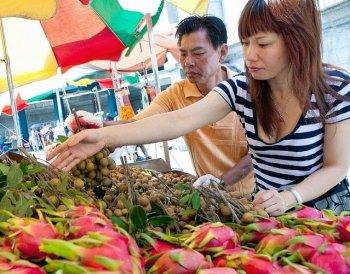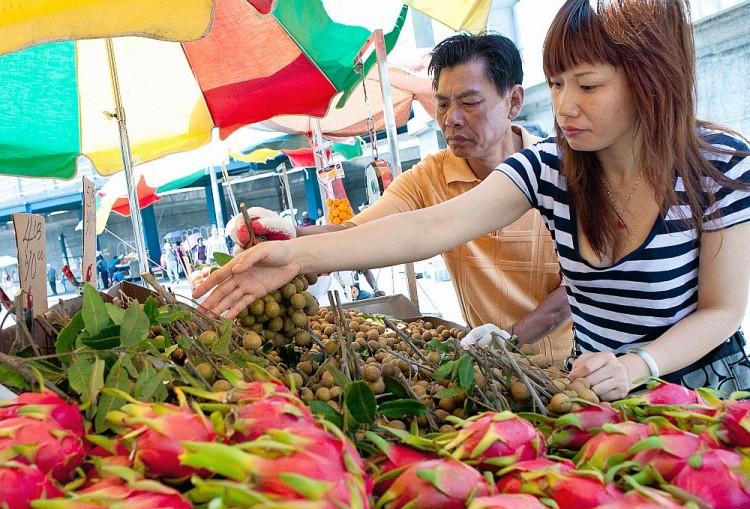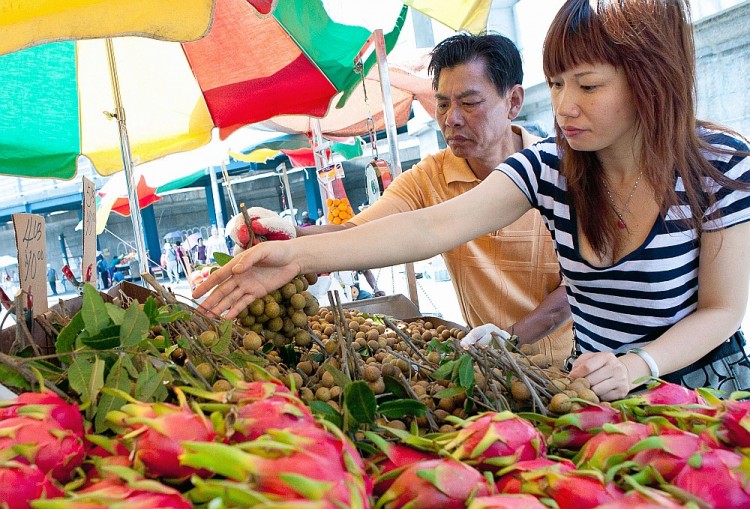Overwhelmed by Fines, Forsyth Street Market Withers
A once-vibrant produce market on Forsyth Street is losing both vendors and customers due to constant pressure from the NYPD and the Department of Health.

AT THE MARKET: A woman is helped by a vendor at the Forsyth Street market on Wednesday. Vendors claim the NYPD is harassing them by issuing excessive summons with fines of up to $1000. Amal Chen/The Epoch Times
|Updated:






